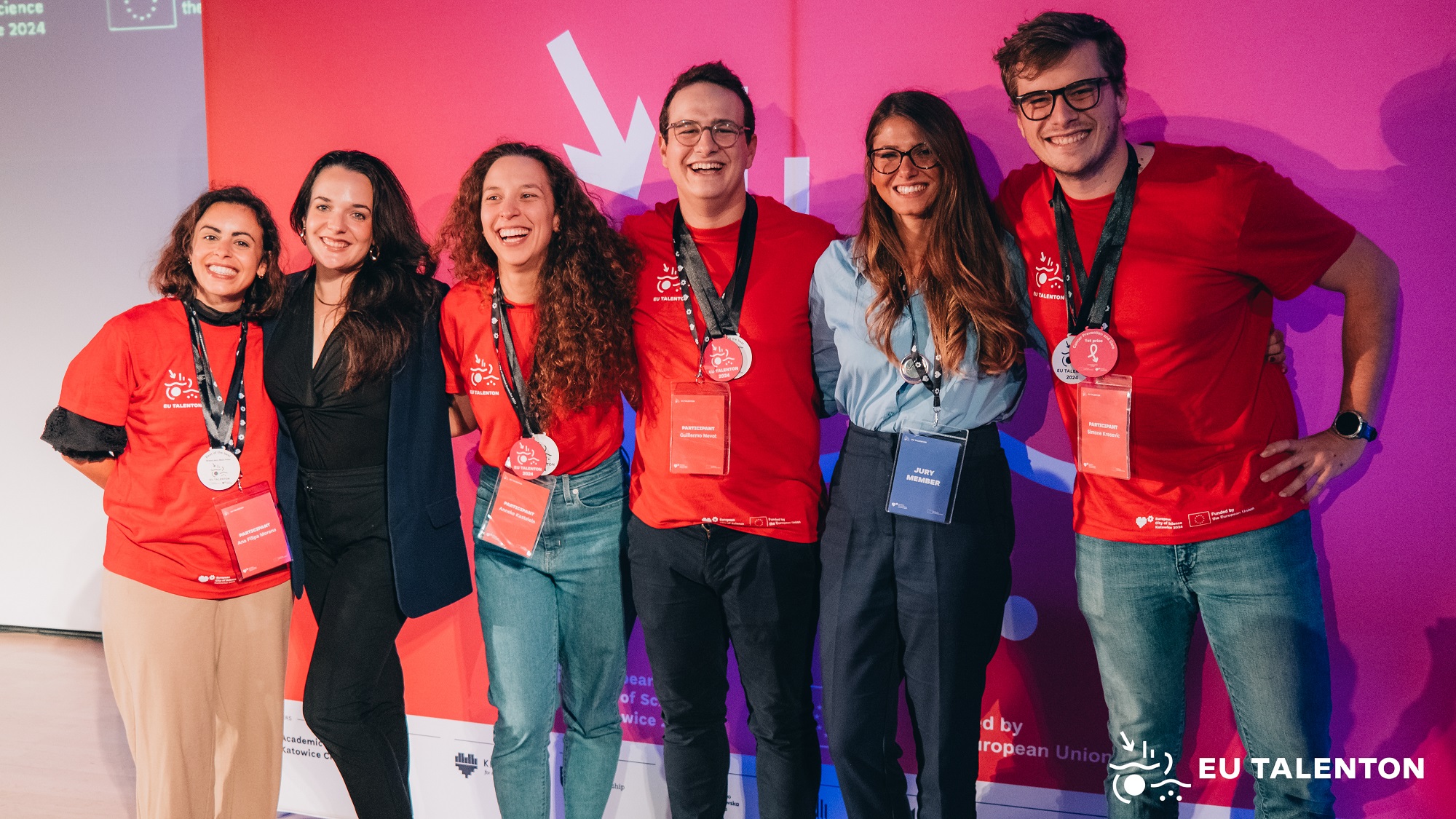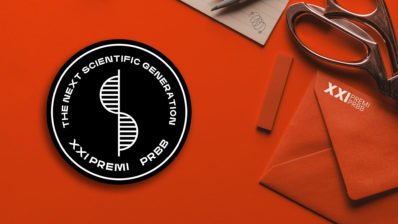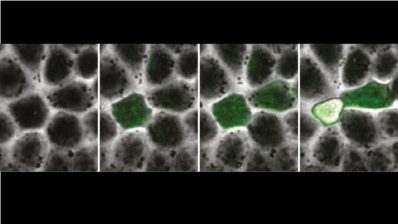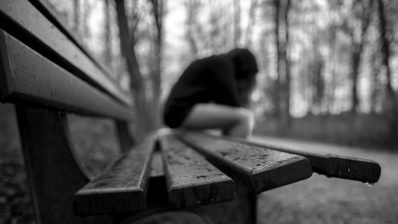The EU TalentON competition, which was first held two years ago in Leiden, celebrated its 2nd edition in Katowice, Poland, as part of the activities organized by the European City of Science 2024. The goal: to bring together promising young minds from around the world to co-create innovative solutions to some of the most pressing challenges of our time.
For 5 days, 108 young scientists, aged 21 to 35 from 38 countries, worked in teams to tackle social challenges linked to the five EU missions within the Horizon Europe framework: Cancer, Soil, Oceans, Climate Change, and Smart Cities.
The goal of EU TalentON is to bring together young and promising minds from around the world to co-create innovative solutions to some of the most pressing challenges of our time.
Guillermo Nevot, a PhD student in the Translational Synthetic Biology Lab at the Department of Medicine and Life Sciences, Pompeu Fabra University (MELIS-UPF), led by Marc Güell, was part of one of these teams.
Guillermo’s team, “Breath for life“, not only won their category prize (Cancer) worth €7,500, but they also won the Grand Prize across all categories, worth €12,000 to be shared among the four members.
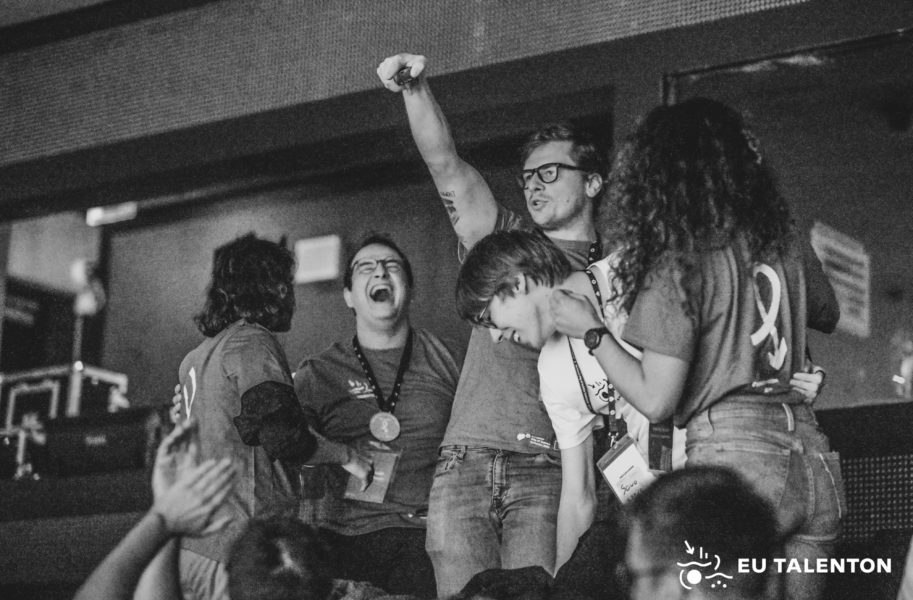
We talk with the young researcher to learn more about his participation in this initiative, which will be repeated in two years.
First of all, congratulations, Guillermo! Tell us, how did you find out about this initiative?
Thank you so much! I actually saw it in several places – including the UPF newsletter about grants and also on LinkedIn, where I follow a lot of European science activities.
And what exactly was the competition about, what did you have to do?
I would call it an “Ideathon” – like a hackathon but for ideas instead of code.
We were split into teams of 4 people, about 5 teams per mission, and had 4 days to present a project addressing a challenge, in our case, cancer.
We had to propose a joint idea, submit a 2-page report — including a business model and an assessment of whether the idea could actually be effective — and prepare a 3-minute pitch to sell it to the judges. They evaluated whether it was creative, original, and feasible, as well as how it was presented.
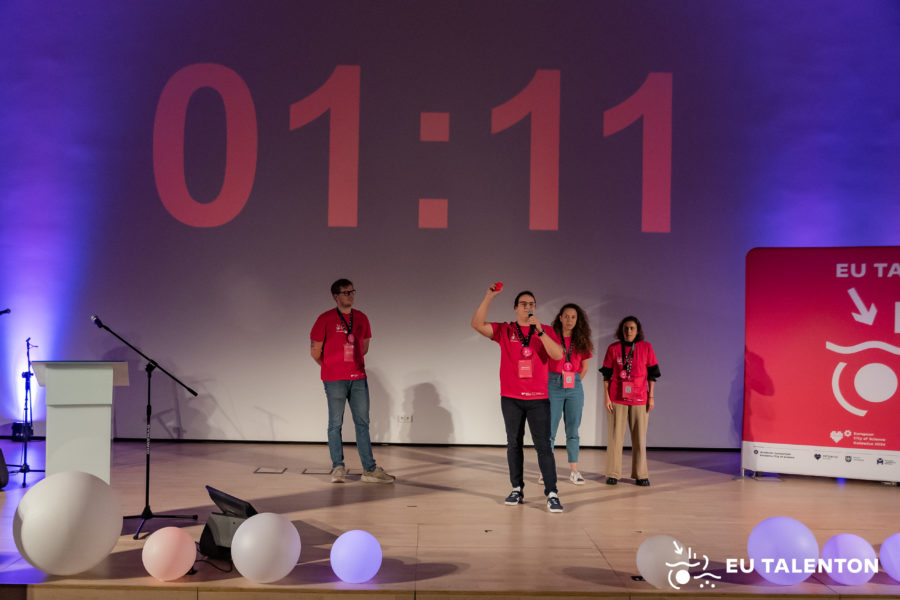
There were 15 judges, 3 for each mission. In our case, the Cancer mission, the judges were Gabriela Kramer-Marek, an expert in molecular diagnosis; Aleksandra Auguściak-Duma, an expert in cardiovascular molecular pathophysiology, and Roberta Gatta, an expert in nasal diagnosis of lung cancer—who, in fact, had won the EU TalentON two years ago! But there were also experts in investment (venture capital), communication…
Did you receive training?
Yes, the competition aims to promote an entrepreneurial spirit among scientists, encouraging us to meet people interested in creating something real. There was a lot of networking, and we received workshops and training from experts in various scientific fields, such as intellectual property, and even from the leader of a European program supporting the creation of start-ups, Piotr Boulangé.
We had general talks and workshops (including yoga!) and then the judges would visit each group, answering our questions, giving us resources, tools, contacts… It was like personalized master classes!
How did you agree on what to do, and what was your project about?
We started thinking about doing something on “cancer fatigue,” which two people in the group were familiar with. How to improve the quality of life for people who have survived cancer, as it affects many people. We started researching, looking for things online. I even organized a post-it dynamic to map out our ideas (a technique I learned in an Intervals course at PRBB!). But we couldn’t find the right approach. We spent an entire day on this before moving on to other ideas.
Then I explained an idea I had a while ago about using volatile compounds (smells) that could help detect things. I had read that some cancers can produce certain volatile molecules, and we thought it would be a very non-invasive system—the patients would only need to blow… But then one of the judges told us that breath gas detection was already being done, and she challenged us to think beyond that. So we came up with the idea of using Artificial Intelligence to generate peptides that would bind to the gases and detect them more easily, electronically, to make it more portable and non-invasive.
What did you find most interesting about the competition?
The most exciting part is the variety and diversity of people you meet and collaborate with. You team up with people you don’t know, from different disciplines, who don’t necessarily work in the field you’re proposing ideas for. For example, I work in synthetic biology, not cancer. The rest of my team—all PhD students from Italy, the Netherlands, and Portugal—included a clinical psychologist, a molecular biologist studying how circadian cycles affect cancer therapies, and a biomedical engineer working on machine learning with medical records. But in the competition, I remember there was someone studying economics and music history, for instance. In fact, anyone between the ages of 21 and 35 with some scientific background could join. You didn’t need to be an academic—there were undergraduate students, young group leaders, and even a guy who worked in tech transfer.
And that’s the beauty of it—the interaction between everyone. Connecting with people who are willing to get involved, to make changes, unafraid to explore, who think beyond their day-to-day work in the lab… In fact, one of the judges said that something that was decisive in awarding us the prize, besides the science behind it, was the chemistry we demonstrated as a team in just a few days.
And now… are you still in touch?
Yes! We’re looking into whether we can get some funding to try to do a proof of concept and see if this technology could actually be implemented… The judges encouraged us a lot to pursue it.
But in any case, one step at a time. First, I had to focus on defending my PhD thesis last week! And now I’ll stay in the lab for a while to finish some projects.
Well, Guillermo congratulations on your newly awarded PhD, on this prize and on whatever comes next!
Here you can watch the 90-second pitch that the five winning teams made to defend the final prize.


